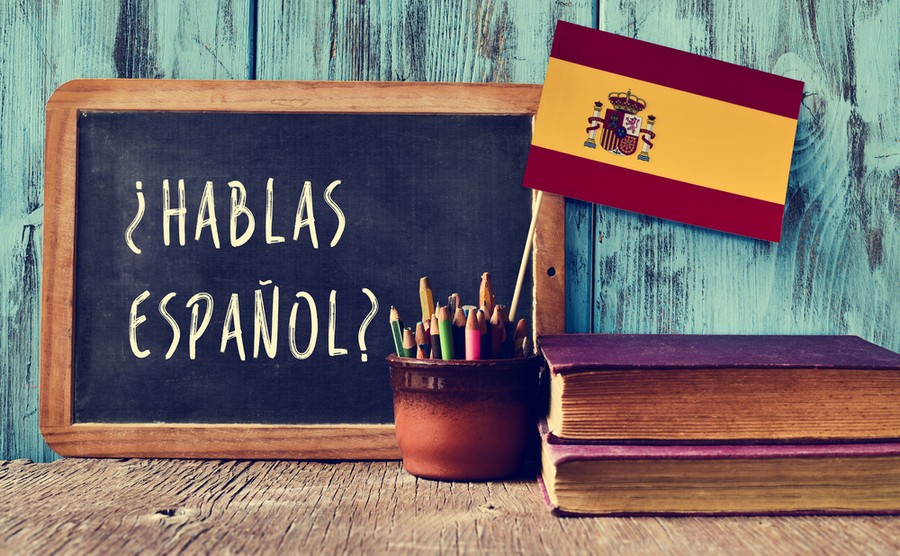“You’re in Spain. You can’t expect everyone to speak English, and an attempt at some Spanish will definitely be appreciated by the locals. It will also make your early days in Spain a lot easier – take it from me!” says Ailsa, a Spanish homeowner who is now 15 years into her Spanish language learning journey.
Ailsa shares her experience of why learning at least basic Spanish can be a lifesaver when buying a home in Spain and some tips for getting started.
For more advice on a smooth integration into Spanish life, read the Emigration Guide to find out everything you need to know about moving to Spain.
Some regions simply don’t speak English!
I started learning Spanish only after we had bought our holiday home, but in hindsight I wish I’d started sooner.
Buying a holiday home outside of the major tourist hotspots gives you a greater exposure to local culture and a more authentic experience, but it may also mean that languages other than Spanish are less widely spoken – and that is exactly what I found when we bought our home in Mazarrón 15 years ago.

Buying outside of the tourist hotspots can mean English speakers are far and few between
I remember only too well the time when, with literally only one hour’s worth of Spanish under my belt, I found myself in a local branch of the bank asking “¿habla usted inglés?” (Do you speak English?) only to be met with a rather hopeless shake of the head, and that sinking feeling that setting up the direct debit for the water company was going to take some time…
“I found myself in a local branch of the bank asking “¿habla usted inglés?” (Do you speak English?) only to be met with a rather hopeless shake of the head”
Save time, feel confident and reap the benefits
Now, years on in my journey with Spanish, I can skip the queue for the solitary English-speaking member of staff in the bank/water company/tax office, etc, and get back to having fun with the family on the beach a lot quicker.
In restaurants, I can order with some confidence that what we end up with is what we expected.
Find your perfect Spanish home on our portal
I also think one of the best ways to integrate with the locals is to take part in local language ‘intercambios’ – a language exchange between a native English speaker and a native Spanish speaker. These often happen in informal settings, such as a bar or a restaurant, where you each practice each other’s language – and having some conversational Spanish will be very helpful here too.
How to start your Spanish language learning journey
Accessing Spanish tuition is very easy these days: online you can find hundreds of free lessons for all levels – just Google Spanish lesson to see for yourself. It can also be a good idea to find yourself a podcast for listening practice, and a native or fluent Spanish-speaking conversation partner.

Why not try a local language ‘intercambios’
If you feel that more formal, weekly sessions are for you, there are traditional sources such as the Adult Education Centre or one-to one tuition. Local networking sites such as Nextdoor can be useful to make contact.
The key thing is to get as much exposure as possible – learning a language does not happen magically, it takes time and effort, but ultimately it will reward you with a more enjoyable and more integrated holiday home experience.











